13 Sep2022
By Beth Kubitskey
For 30 years, I have been involved in teaching and teacher education as a graduate student, lecturer, professional development facilitator, teacher, professor, and administrator. Most of that time I was part of the university system. I worked for years at one of the oldest teacher preparation programs in the country (Eastern Michigan University) and now at an institution that offers a non-profit higher education alternative route certification (University of Michigan – Flint, although it is a 30+ credit master’s program). I wondered if my experience prejudiced my view on for-profit alternative route programs (alt. routes). Was my negative visceral reaction to “why can’t getting your teaching certificate be like getting a real estate license?” justified? With enrollment in traditional higher education teacher preparations falling 47% from 2010-2020 and enrollment in for-profit alternative routes up 140%, am I just reacting to the threat?
The webinar presented by AACTE: “The Growth and Impact of Alternative Certification: Findings from Two Studies” confirmed my concerns. Texas, the first state to approve non-higher education alt-routes, prepares more teachers than any other state in the country, and as of 2018-19, had 41 for-profit alt route programs that accounted for 68% of all enrollments in teacher education programs in the state. As such, Texas was used as the site of a two-components study on for-profit alternative route certification programs.
12 Sep2022
By Rachel Besharat Mann

Rachel Besharat Mann will share her experience in translating learning sciences into practice using the Digital Promise Learner Variability Navigator tool during the webinar co-hosted by AACTE, “Learning Sciences Research for the Classroom” on September 26, 2:00 – 3:00 p.m. Below, Mann offers a preview about her experience using the web app for whole child learning.
You can read all of the teaching books and take all of the courses but being in the classroom is a completely different experience. You are working with individual people with varied backgrounds and needs and their behaviors; strengths, and needs can change based on a variety of factors outside of a teacher’s control. There is no roadmap to tell you how students learn differently or even if they are learning at all. This is a lesson I’ve learned the hard way over the years and have vowed to help my higher education students avoid the same pitfalls in K-12 classrooms that I did.
06 Sep2022
By Jill McGranahan
This article originally appeared on MSU Denver RED.
With the psychological and economic pressures of Covid-19, increased gun violence, systemic racism, political polarization and, most recently, the financial stresses of inflation, many adults are struggling with their mental and emotional health. It’s no wonder that children, too, are experiencing more trauma than ever.
Last fall, the American Academy of Pediatrics, the American Academy of Child and Adolescent Psychiatry and the Children’s Hospital Association jointly declared a national emergency in child and adolescent mental health due to “soaring rates of depression, anxiety, trauma, loneliness and suicidality” caused by Covid-19 and other factors. Trauma such as physical abuse, bullying and witnessing violence will often contribute to higher anxiety and negatively impact attention, memory, cognition, problem solving, reading ability and academic performance, according to the National Child Traumatic Stress Network.
25 Aug2022
By PDK International
 The 54th annual PDK Poll of the Public’s Attitudes Toward the Public Schools finds record-high ratings for local public schools — but record low support among parents for their children becoming teachers. Only 37% of respondents say they would want a child of theirs to become a public school teacher in their community. This is the lowest level of support the profession has seen since 1969, when support for teaching as a career choice peaked at 75%.
The 54th annual PDK Poll of the Public’s Attitudes Toward the Public Schools finds record-high ratings for local public schools — but record low support among parents for their children becoming teachers. Only 37% of respondents say they would want a child of theirs to become a public school teacher in their community. This is the lowest level of support the profession has seen since 1969, when support for teaching as a career choice peaked at 75%.
Overall, 54% of adults give an A or B grade to the public schools in their community, the highest percentage in PDK Polls since 1974, up 10 points since the question was last asked in 2019.
24 Aug2022
By Carla Carlton
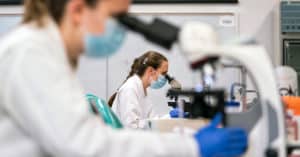
Bellarmine University will recruit and prepare highly qualified science and mathematics teachers for high-need Kentucky middle and high schools with the support of a five-year $1.45 million grant from the National Science Foundation’s Robert Noyce program.
The grant will support “Noyce Knights Scholars”— students who wish to teach in the STEM (science, technology, engineering and mathematics) areas of physics, chemistry, biology and mathematics.
23 Aug2022
By Nicole Dunn
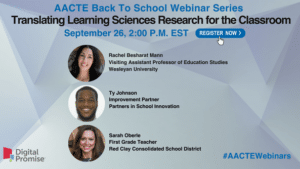
AACTE has teamed up with the leaders of Digital Promise’s Learner Variability Project to address systems-level transformation that directly addresses the challenges students face by using the Learner Variability Navigator (LVN); a free open-source tool to make learning sciences research accessible to educators. Earlier this year, a representative group of AACTE members were introduced to the project and navigation tools, and using their feedback, AACTE is pleased to bring you the webinar series that lifts up tools and practices with the Learner Variability Project most relevant to the educator preparation field.
22 Aug2022
By Natalie Khairallah
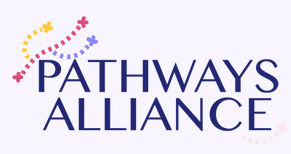 Teacher residency programs seek to offer an innovative approach to teacher certification, shifting the landscape of education to better recruit and retain high-quality teachers. These residencies can help attract a diverse pool of teachers — aiming to offset the shortage crisis and address the immediate staffing needs — by offering a supportive and affordable path to teaching.
Teacher residency programs seek to offer an innovative approach to teacher certification, shifting the landscape of education to better recruit and retain high-quality teachers. These residencies can help attract a diverse pool of teachers — aiming to offset the shortage crisis and address the immediate staffing needs — by offering a supportive and affordable path to teaching.
22 Aug2022
Cummings Foundation donates $10 million to Diversify and Strengthen Teacher Pipeline
By Salem State University and Cummings Foundation
 Cummings Foundation has donated $10 million to Salem State University’s School of Education to support programs and initiatives aimed at diversifying, strengthening, and sustaining the next generation of educators. The gift represents the largest cash contribution ever made in the history of the nine Massachusetts state universities.
Cummings Foundation has donated $10 million to Salem State University’s School of Education to support programs and initiatives aimed at diversifying, strengthening, and sustaining the next generation of educators. The gift represents the largest cash contribution ever made in the history of the nine Massachusetts state universities.
22 Aug2022
By Michael Rose
On August 31, AACTE representatives will participate in a webinar sponsored by the U.S. Department of Education (register here). Officially titled, “Helping Teachers Afford Comprehensive Pathways into the Profession and Achieve Loan Forgiveness,” the webinar will discuss TEACH Grants and the Public Service Loan Forgiveness (PSLF) programs, valuable tools to help attract and retain individuals interested in pursuing a career in education.
11 Aug2022
By Jonathan Barry Wolf
The Pathways Alliance, a coalition of education organizations dedicated to supporting and implementing diverse and inclusive educator preparation pipelines, announces the release of their latest report, “Towards a National Definition of Teacher Residencies.” Based on input from teacher residency programs and other education leaders from across the country, this groundbreaking first-of-its-kind report offers a condensed yet thorough definition to guide policies that can support high-quality residencies to attract, prepare, and retain a robust and diverse teaching workforce. The report was written by the Pathways Alliance Teacher Residency Working Group, co-chaired by the National Center for Teacher Residencies (NCTR) and Prepared To Teach, Bank Street College. The working group participants included state education departments, educator preparation programs, and national nonprofit organizations. In addition, more than 40 organizations gave feedback and reviewed the report and definition.
11 Aug2022
By Kristen Cuthrell
Schools are a microcosm, reproducing the inequities seen in American society. As educator preparation faculty in this context, it is imperative to put equity at the forefront of programming and mission. In this volume, we position co-teaching as an innovation that can mitigate inequities in classrooms. Co-teaching is typically associated with special education or inclusion classrooms; however, more recently it is being used in general education classrooms at BK-12 level and in educator preparation.
22 Jul2022
By Teresa Monaco Burnett
 This May, a group of students in the Texas Christian University’s College of Education took a week-long trip to the Holocaust Museum of Houston as part of the Warren Fellowship program. The trip was a culmination of studying the Holocaust and antisemitism in Jan Lacina’s Literacy Leadership class. Lacina is the Bezos Family Foundation Endowed Chair in Early Childhood Education and associate dean of graduate studies in the TCU College of Education.
This May, a group of students in the Texas Christian University’s College of Education took a week-long trip to the Holocaust Museum of Houston as part of the Warren Fellowship program. The trip was a culmination of studying the Holocaust and antisemitism in Jan Lacina’s Literacy Leadership class. Lacina is the Bezos Family Foundation Endowed Chair in Early Childhood Education and associate dean of graduate studies in the TCU College of Education.
“I was compelled to integrate course goals, readings, and discussions about the Holocaust into my Literacy Leadership class because of recent antisemitic acts that took place in Texas,” Lacina said.
19 Jul2022
By Kaitlyn Brennan

This weekly Washington Update is intended to keep members informed on Capitol Hill activities impacting the educator preparation community. The views expressed in this post do not necessarily reflect the views of AACTE.
This week, the 87th biennial American Federation of Teachers (AFT) convention is taking place in Boston, where the city will welcome more than 3,000 members and leaders of the labor group. Today, First Lady Dr. Jill Biden will address the AFT with Labor Secretary Marty Walsh and Massachusetts Sens. Elizabeth Warren and Ed Markey scheduled to take the stage as well. The AFT convention comes as districts across the nation are beginning to prepare for a return to school in the fall while in the midst of a critical shortage of educators and specialized instructional support personnel. An all-hands-on-deck approach will be needed, which includes comprehensive, full preparation coupled with support from federal, state, and local governments in order to address this crisis.
11 Jul2022
By Denise Ray
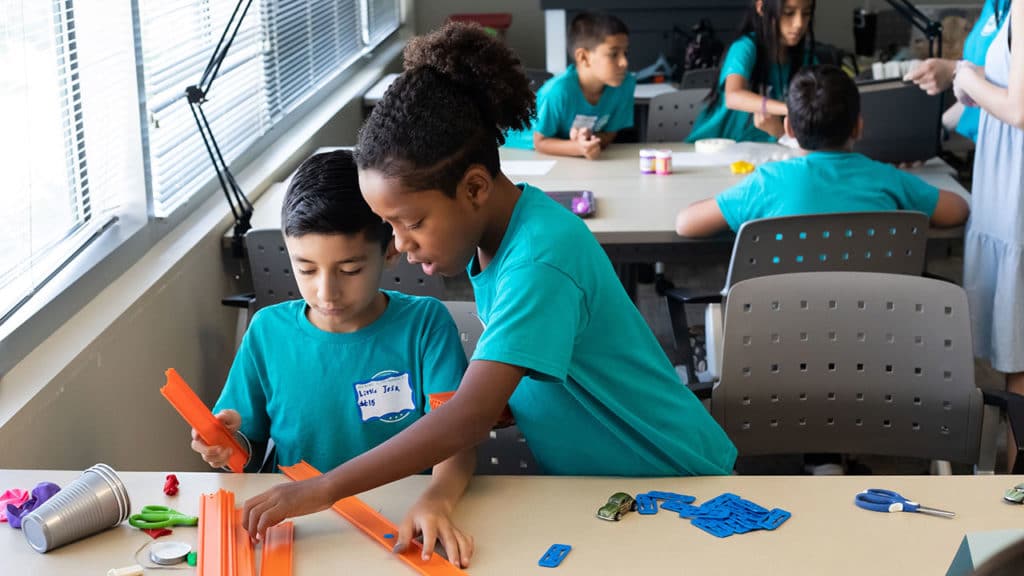
The University of North Georgia’s (UNG) Summer Scholars STEM Institute held throughout the month of June helped pre-service teachers in UNG’s College of Education gain experience in preparing lesson plans in science and engineering while focusing on English language learners. A nearly $300,000 National Science Foundation grant, which runs through 2024, helped fund the academy for 60 students rising into fourth grade through eighth grade at local area schools.
07 Jul2022
By Jason Harper
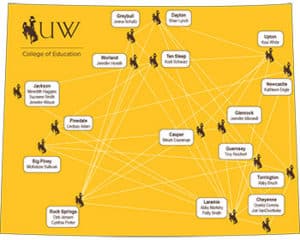 The University of Wyoming has welcomed the inaugural cohort of the Wyoming Teacher-Mentor Corps (WTMC), an initiative led by the UW College of Education.
The University of Wyoming has welcomed the inaugural cohort of the Wyoming Teacher-Mentor Corps (WTMC), an initiative led by the UW College of Education.
The WTMC is designed to foster teacher excellence by creating a network of Wyoming educators who can provide expert support for emerging teachers. The 21 cohort members represent 16 of the state’s 48 school districts — creating a web of expert teacher mentors that spans Wyoming.












 Cummings Foundation has donated $10 million to Salem State University’s School of Education to support programs and initiatives aimed at diversifying, strengthening, and sustaining the next generation of educators. The gift represents the largest cash contribution ever made in the history of the nine Massachusetts state universities.
Cummings Foundation has donated $10 million to Salem State University’s School of Education to support programs and initiatives aimed at diversifying, strengthening, and sustaining the next generation of educators. The gift represents the largest cash contribution ever made in the history of the nine Massachusetts state universities.


